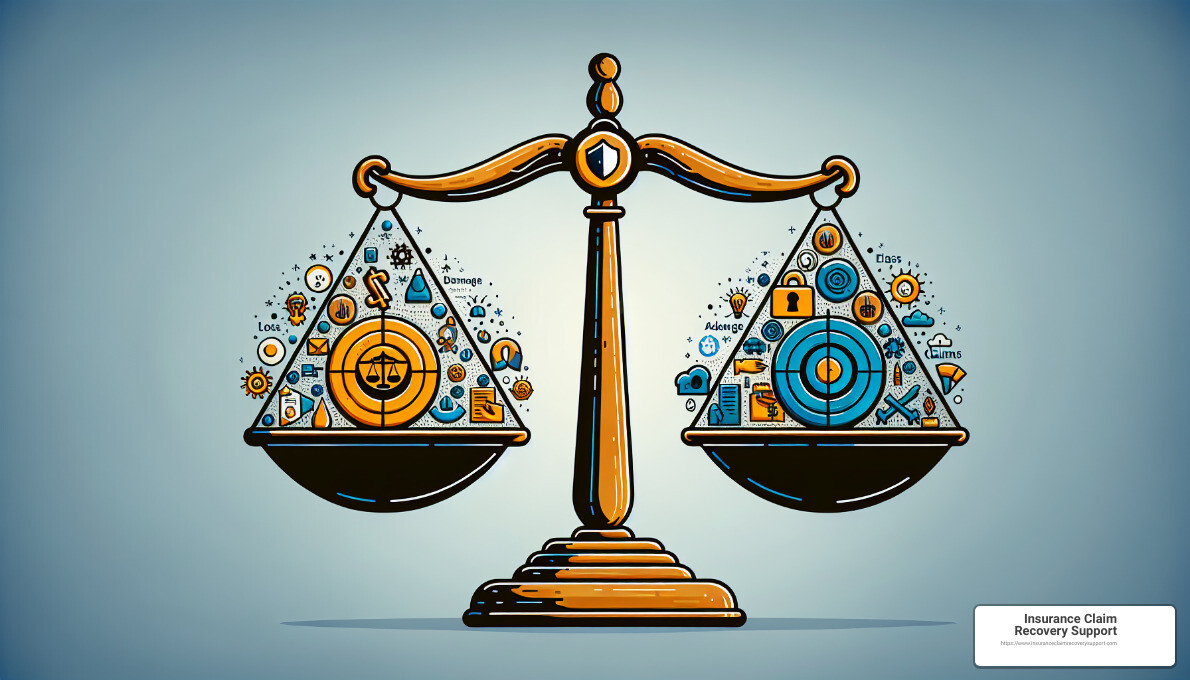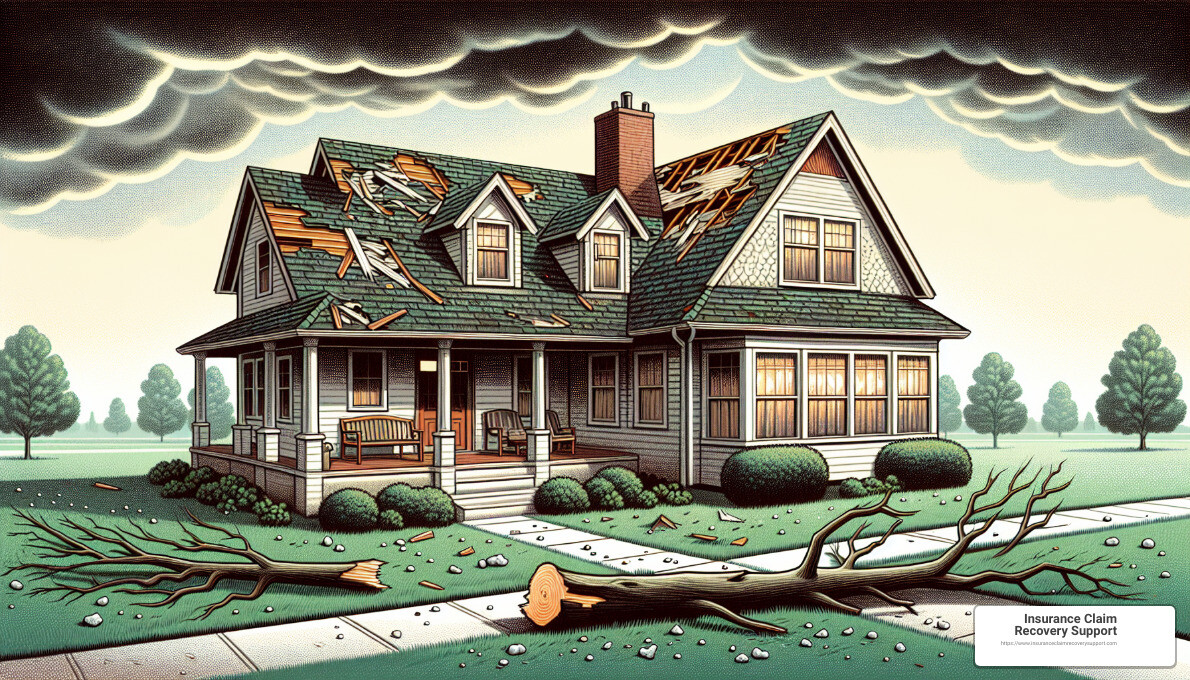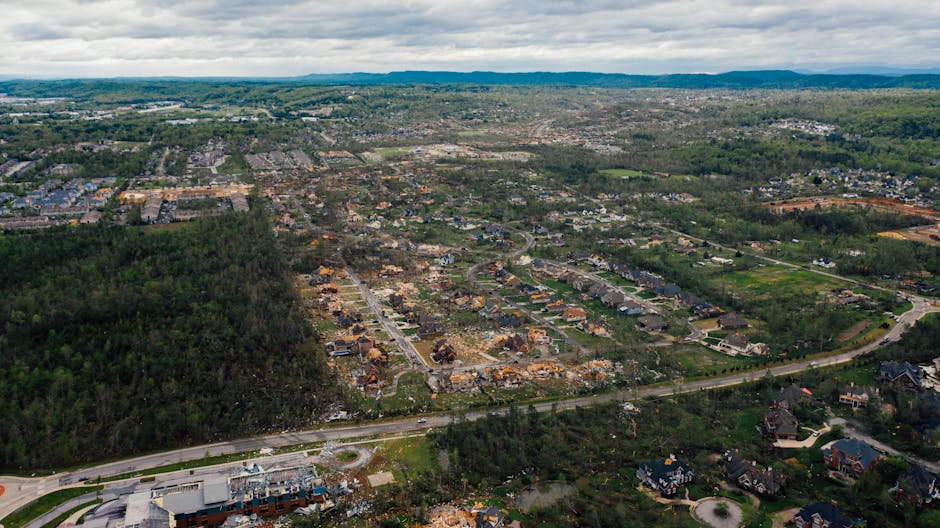Have you ever found yourself grappling with the intricacies and complexities of an insurance claim process? When disaster hits your property, the ensuing insurance claim can often feel like navigating a labyrinth. Languages of policies, technical requirements, and demands from your insurance provider can turn into a tangled web, only adding to the stress. One term that frequently comes up in these situations is a ‘claim adjuster’. But what exactly is the meaning of claim adjuster?
In the simplest terms, claim adjusters are professionals who handle all matters pertaining to an insurance claim. They are the bridge between policyholders and insurance companies and are expected to determine the amount of loss and liability. Their role can vary depending on which side they represent: the insurance company or the policyholder.
Having a clear understanding of the claim adjuster meaning and their role can be instrumental for property owners, especially during post-disaster recovery. Knowing this, you’re not only aware of what to expect but it also allows you to develop a strategy to navigate your insurance claims more efficiently.
Here’s a quick snapshot of what a claim adjuster is:
– A claim adjuster is a licensed professional who represents either the insurance company or the policyholder.
– They handle the investigation, verification, and valuation of insurance claims.
– An adjuster’s key responsibilities consist of examining damaged properties, interviewing claimant, and determining the amount that insurance companies should pay.
– Public adjusters specifically represent the interest of policyholders against insurance companies.
– Their ability to meticulously document each aspect of the claim allows them to negotiate effectively.
– They have a deep understanding of the insurance industry and can maximize the potential of an insurance claim payout.

No two claim adjusters are created equal, nor ideally should they be. Their type and role can vary significantly based on who they represent. More light on this will be shed as we delve deeper into the different types of claim adjusters and their individual roles and responsibilities.
The Different Types of Claim Adjusters
Navigating the insurance claim process can be confusing, especially when dealing with the different types of adjusters involved. Understanding the claim adjuster meaning is crucial to ensure you’re dealing with the right professional for your claim. Here are the three main types of claim adjusters:
Insurer Adjusters: The Company’s Representative
These adjusters, sometimes referred to as staff adjusters, are employed directly by the insurance company. Their role is to represent the insurance company’s interests, investigating the claim, determining the extent of the insurer’s liability, and negotiating settlements. However, policyholders should keep in mind, these adjusters’ primary allegiance is to their employer, the insurance company.
Independent Adjusters: The Freelance Professionals
Independent adjusters are not directly employed by an insurance company. Instead, they work as contractors for multiple insurance companies or adjusting firms. Much like insurer adjusters, they investigate claims, assess damages, and attempt to settle claims on behalf of the insurer. They generally step in during catastrophic events when insurers require additional help to handle a large volume of claims.
Public Adjusters: The Policyholder’s Advocate
On the other side of the spectrum are public adjusters. Public adjusters are licensed professionals hired by the policyholder to represent their interests. Unlike insurer and independent adjusters, public adjusters work exclusively for the policyholder, not the insurance company.
At Insurance Claim Recovery Support, we provide public adjuster services to help policyholders navigate the complexities of the claims process. We offer strategic risk management advice, thorough investigation, and expert negotiation to settle your property damage insurance claim fairly, promptly, and without unnecessary litigation.
By understanding the difference between these types of adjusters, policyholders can ensure they have the right support throughout the claims process. While insurer and independent adjusters are focused on the insurance company’s interests, a public adjuster is the policyholder’s advocate, working on their behalf to ensure a fair and prompt settlement.
The Responsibilities of a Claim Adjuster
To understand the claim adjuster meaning, we should delve into their primary responsibilities, which encompass three main areas: investigating the claim, evaluating the insurer’s liability, and negotiating settlements.
Investigating the Claim: Gathering Information and Evidence
One of the first duties of a claim adjuster is to conduct a thorough investigation of the claim. The adjuster will review the policy language, as some coverages and exclusions can be open to interpretation. They will then assist the policyholder in meeting their burden of proof for claimed property damages.
The adjuster will carry out physical inspections and assessments of the damage and match up losses with the appropriate property coverages for a fair settlement demand. They will also review and respond to carrier correspondence, addressing any omissions, misrepresentations, wrongful denials, or violations of policy and insurance code statutes.
Evaluating the Claim: Determining the Insurer’s Liability
Once the investigation phase is complete, the adjuster moves on to evaluating the claim. This involves compiling and submitting a pro-policyholder claim package to the insurer. This package includes supporting evidence that documents the damages, the estimated scope of work, estimated costs, occurrence data, third-party reports, photos, news stories, policy language, statutes, bulletins, proper forms, and a proof of loss.
The adjuster will also incorporate reasonable arguments to trigger coverage under the insurance policy, in compliance with the insurance code statutes of the state. They will expose the insurer’s liabilities and potential violations of the statutory insurance codes and argue with a credible degree of certainty any questionable allegations of an insurer’s view for underpayment, delays, or wrongful denial of the property damage insurance claim.
Negotiating Settlements: Ensuring Fair Compensation
Finally, the adjuster will negotiate a fair and prompt settlement. If necessary, they will prepare, complete, and/or file a complaint to the state department of insurance on your behalf. The adjuster’s role is to proactively remove objections, roadblocks, and wrongful withholding of coverages.
At Insurance Claim Recovery Support, we work tirelessly to ensure our clients receive the maximum settlement they deserve with minimum time delays and stress. We believe that engaging a good public adjuster at the beginning of a claim is the best time, especially if the claim is a partial loss, large, or complex.
In summary, the claim adjuster meaning is best understood through their responsibilities: investigating the claim, evaluating the insurer’s liability, and negotiating settlements. These tasks require a deep understanding of policy terms, claims submissions, and proper claim-handling practices. Our public adjusters at Insurance Claim Recovery Support effectively navigate these complexities, ensuring that policyholders achieve a fair and prompt settlement.
The Process of Becoming a Claim Adjuster
Becoming a claim adjuster isn’t just about understanding the claim adjuster meaning; it involves a combination of education, licensing, and a deep understanding of insurance policies and regulations. Here are the steps involved:
Educational Requirements: High School Diploma or GED Equivalent
The educational requirements for becoming a claim adjuster are not very rigid. In most cases, a high school diploma or its equivalent is sufficient. However, having a degree in insurance, finance, or a related field can be advantageous. What truly matters is the adjuster’s understanding of insurance policies, regulations, and claim handling procedures.
Licensing Requirements: State-Specific Regulations and Continuing Education
The licensing requirements for claim adjusters vary by state. In Texas, for example, aspiring adjusters must pass the Texas All Lines Insurance Adjuster exam. This exam tests knowledge on various insurance-related topics, which is why many choose to take insurance adjuster classes to prepare. These classes equip adjusters with key insights and know-how, transforming competent adjusters into industry-defining experts.
After passing the exam, you must complete your fingerprints and submit an application within one year. Failure to do so results in the need to retake the exam. Additionally, Texas requires all applicants to be at least 18 years old and have a clean background.
To maintain a license, some states require continuing education. This ensures that adjusters stay up-to-date with the latest industry practices and regulations.
At Insurance Claim Recovery Support, our public adjusters not only meet all these requirements but also go the extra mile to stay informed about the latest developments in the industry. This expertise is crucial in helping policyholders avoid unnecessary litigation, delays, and underpayment, and to ensure a fair and prompt settlement.
In the next section, we’ll take a closer look at the role of a claim adjuster in Texas, particularly in dealing with fire and storm damage claims.
The Role of a Claim Adjuster in Texas: A Closer Look
Dealing with Fire and Storm Damage Claims in Texas
In Texas, the role of a claims adjuster takes on added significance due to the state’s diverse weather conditions and associated risks. Fire, hail, hurricane, tornado, and flood damage claims are all too common, and navigating these complex processes can be daunting for policyholders.
A public adjuster like us at Insurance Claim Recovery Support steps in to assist policyholders with assembling and submitting claims, negotiating settlements, and ensuring the fullest compensation possible.
It is also worth noting that some insurers in Texas exclude windstorm and hail damage from coverage, especially in coastal regions. For policyholders, this means having to purchase separate insurance, adding another layer of complexity to the claims process.
Navigating the Insurance Claim Process in Major Texas Cities
Austin, Dallas, Fort Worth, San Antonio, Houston, Lubbock, San Angelo, Waco, Round Rock, Georgetown, Lakeway
Navigating the insurance claim process can vary from city to city, even within the same state. In Texas, major cities like Austin, Dallas, Fort Worth, San Antonio, Houston, and others each hold their own unique challenges when it comes to insurance claims.
Insurance Claim Recovery Support extends its services across these major Texas cities, offering expert assistance to policyholders dealing with property damage claims. Our licensed public insurance adjusters are experienced in handling fire, hail, flood, wind, water, freeze, hurricane damage, and other storm-related property damage insurance claims for residential, multifamily, and apartment complex policyholders.
Understanding the claim adjuster meaning and their role can greatly assist policyholders in successfully navigating their insurance claims. Whether you’re in Austin, Dallas, or any other Texas city, Insurance Claim Recovery Support is here to help you navigate the complex insurance claim process and ensure you get the fair and prompt settlement you deserve.
The Impact of a Public Adjuster: Maximizing Your Settlement
Now that we have a good grasp of the claim adjuster meaning and their responsibilities, let’s delve into the specific impact of a public adjuster on your settlement. Public adjusters can play a crucial role in maximizing your settlement, ensuring you receive fair compensation for your property damage.
The Benefits of Hiring a Public Adjuster
Expertise: Public adjusters are experts in dealing with insurance claims. They understand the intricate language of insurance policies and are skilled at navigating the often complex claim process. This expertise equips them to negotiate effectively with insurance companies on your behalf, which can result in higher payouts than you might achieve on your own.
Time Savings: The insurance claim process can be time-consuming and complicated. Hiring a public adjuster can save you significant time and effort as they handle the details and negotiations involved in the process.
Documentation: A crucial part of any insurance claim is the accurate and comprehensive documentation of damages. Public adjusters precisely document the damage, including taking photographs, recording videos, and creating an extensive inventory of damaged items. This detailed evidence strengthens your claim and can lead to a higher settlement.
Negotiation: Insurance companies often offer lower settlement amounts than policyholders are entitled to. A public adjuster is a skilled negotiator who fights for your rights, working to ensure you receive a fair settlement.
Mitigating Further Damage: While you await the settlement, public adjusters can guide you in taking proactive measures to prevent additional property damage, a step often required by insurance policies.
The Potential Risks and How to Avoid Them
While hiring a public adjuster offers numerous benefits, it’s important to be aware of potential risks.
Cost: Public adjusters work for a fee, usually a percentage of the settlement amount. Make sure you understand the fee structure before hiring an adjuster.
Fraud: Unfortunately, there are fraudulent individuals who pose as public adjusters. To avoid falling victim, ensure the adjuster you hire is licensed and bonded. You can verify their credentials through your state’s department of insurance.
Misrepresentation: An adjuster might overstate the amount you can recover from your claim. To avoid this, it’s crucial to have a clear understanding of your insurance policy and your coverage limits.
We at Insurance Claim Recovery Support are dedicated to helping you navigate the complexities of the insurance claim process. As top-rated public adjusters, we strive to maximize your settlement, ensuring you receive the compensation you rightfully deserve. We help you avoid unnecessary litigation, delays, underpayment, or wrongful denial, providing peace of mind during a challenging time.
Conclusion: The Importance of Understanding the Role of a Claim Adjuster
In the intricate world of insurance claims, understanding the claim adjuster meaning is vital. Claim adjusters are the individuals who decipher the complexities of insurance policies, conduct investigations, assess the loss, and negotiate the settlements. Their role is critical in determining the outcome of your insurance claim.
Public adjusters, like us at Insurance Claim Recovery Support, serve as the policyholder’s advocate. We handle the intricate aspects of your claim, ensure all policy conditions and requirements are met, and prevent the risk of claim denial or underpayment. We represent your interests directly against your insurance company, aiming for the most favorable settlement possible.
Understanding the claim adjuster meaning can make a significant difference in your claim’s outcome. Public adjusters can increase the potential overall payout of a claim, speed up the settlement process, and reduce the stress associated with post-disaster recovery. They bring invaluable expertise to the table, allowing business owners to focus on maintaining business continuity.
As a policyholder, it’s crucial to remember that the burden of proof falls on you. Insurance companies employ their own adjusters and consultants who represent their interests, not yours. By hiring a public adjuster, you gain an ally who understands the ins and outs of the insurance industry and can effectively represent your interests.
In conclusion, understanding the role of a claim adjuster, particularly a public adjuster, is an essential part of navigating the insurance claim process. With the right public adjuster by your side, you can ensure that your claim is handled professionally and efficiently, allowing you to focus on what matters most – recovering from your loss and getting your business back on track.
For further insights and support, explore our Commercial Insurance Claims page or learn more about when to hire a public insurance adjuster on our website.










